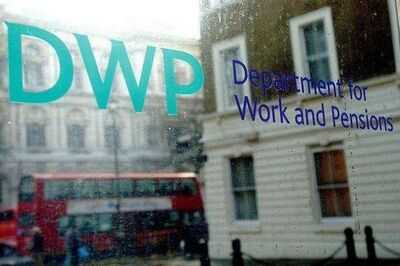The Department for Work and Pensions (DWP) has made a major change to amid its crackdown on benefit fraud, adding an additional 5,000 investigators to stop "people ripping off the public purse". The DWP has said its new powers within the Public Authorities (Fraud, Error and Recovery) Bill will allow them to "keep pace with offenders who exploit the social security system".
DWP Minister Andrew Western recently informed MPs that the UK Government is "committed to significant measures to counter welfare fraud, error and debt". This came in response to a query from Conservative MP John Cooper about the steps being taken to combat fraud in the welfare system.
In his reply to the Dumfries and Galloway MP, Mr Western detailed how the new Fraud Bill includes "the "biggest package" of new measures "in recent history". He also mentioned that the Office for Budget Responsibility (OBR) predicts it will result in an additional £9.6 billion of savings over the next five years, reports the Daily Record.
- Man 'outsmarts' Tesco as he shares how he managed to halve cost of his food shop
- HMRC calls on Brits born between two dates to claim £2,212 pots
Labour MP for Stirling and Strathallan, Chris Kane, then drew attention to the rise in tax avoidance. He said: "While we recognise the need to tackle fraud in our welfare system, we should also recognise the huge issue with tax avoidance and evasion - as recently highlighted by the Public Accounts Committee - which requires significant attention."

Responding to this, the DWP Minister said: "This Government are determined to bear down on tax evasion with 5,000 additional investigators. Wherever we see people ripping off the public purse, whether that is defrauding the Department for Work and Pensions or abusing the tax system, we are determined to bear down on them, and that is what we will do."
The DWP distributes welfare benefits to approximately 23.7 million people throughout Great Britain. This figure encompasses 13 million recipients of the New or Basic State Pension - categorised as a contributory benefit - alongside people claiming at least one DWP benefit.
DWP fraud and error reportThe yearly 'Fraud and error in the benefit system' report, which calculates how much money the Department has wrongly distributed during the 2024/25 financial year, through either overpayments or underpayments, shows that £9.5 billion was overpaid to claimants, representing 3.3 per cent of total benefits expenditure.
This marks a decrease from £9.7bn (3.6%) in 2023/24.The overall rate of benefit underpayments stayed unchanged at £1.2bn (0.4%).To be eligible for DWP benefits, people must satisfy specific qualifying conditions, with the sum they receive determined by their personal situation.
DWP explained: “Sometimes people tell us the wrong information or do not tell us when their circumstances change. Reporting accurate information and providing evidence may change the amount of benefit people are eligible for and in some circumstances, they may be eligible for more money.
“However, we cannot calculate the correct amount unless people tell us accurately about their circumstances. This means that people are not eligible for increases in the amount of money they receive until we have the correct information.”
DWP fraud and error review for 2025/26 financial yearThe Department for Work and Pensions (DWP) has confirmed that it will be assessing sample cases from six benefits for 'unfulfilled eligibility' over the current financial year, which concludes on 5 April 2026.
These include:
- Universal Credit
- Housing Benefit (pension age, both passported and non-passported cases)
- Pension Credit
- State Pension
- Personal Independence Payment
- Disability Living Allowance for children
The DWP outlines the three types of fraud and error.
Fraud
Claims where all three of the following conditions apply:
- the conditions for receipt of benefit, or the rate of benefit in payment, are not being met
- the claimant can reasonably be expected to be aware of the effect on their entitlement
- benefit payment stops or reduces as a result of the claim review
Claimant error (unfulfilled eligibility)
An overpayment has occurred where the claimant has provided inaccurate or incomplete information, or failed to report a change in their circumstances, but there is no evidence of fraudulent intent on the claimant's part.
Official error
The benefit has been paid incorrectly due to a failure to act, a delay or a mistaken assessment by DWP, a local authority or HM Revenue and Customs (HMRC), to which no one outside of that department has materially contributed.
The DWP plans to publish the findings for 2025/26 in May next year.
You may also like

Tennessee explosion LIVE: Multiple dead and more missing after munitions plant blast

The Woman in Cabin 10 ending explained: Who is the woman?

In shocking move, French President Macron reappoints Sebastien Lecornu as PM

Martin Lewis urges anyone who bought a car from 2007-2024 to act now - 'Owed hundreds'

Dad-of-three killed after jet hose exploded and hit face as company fined £800k






